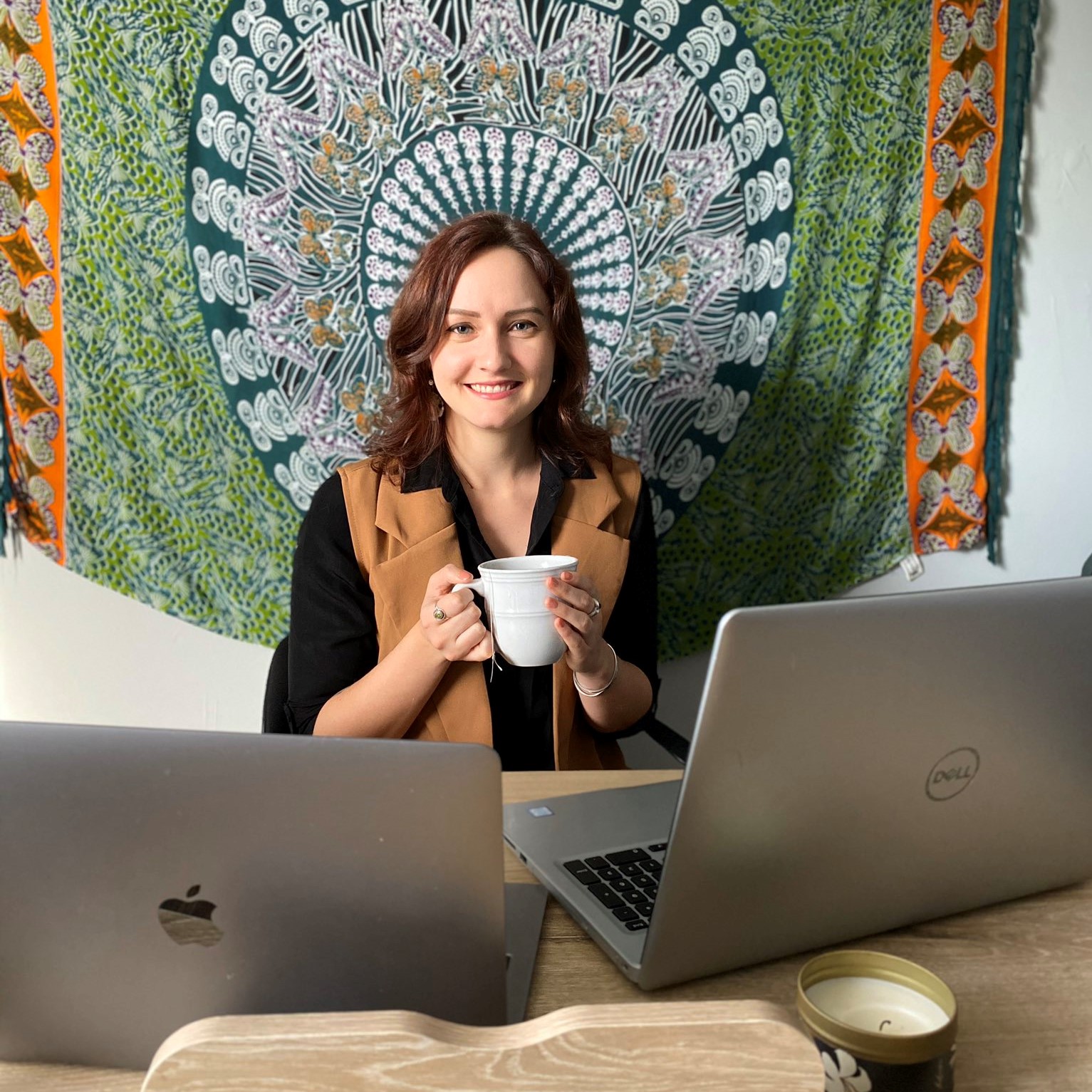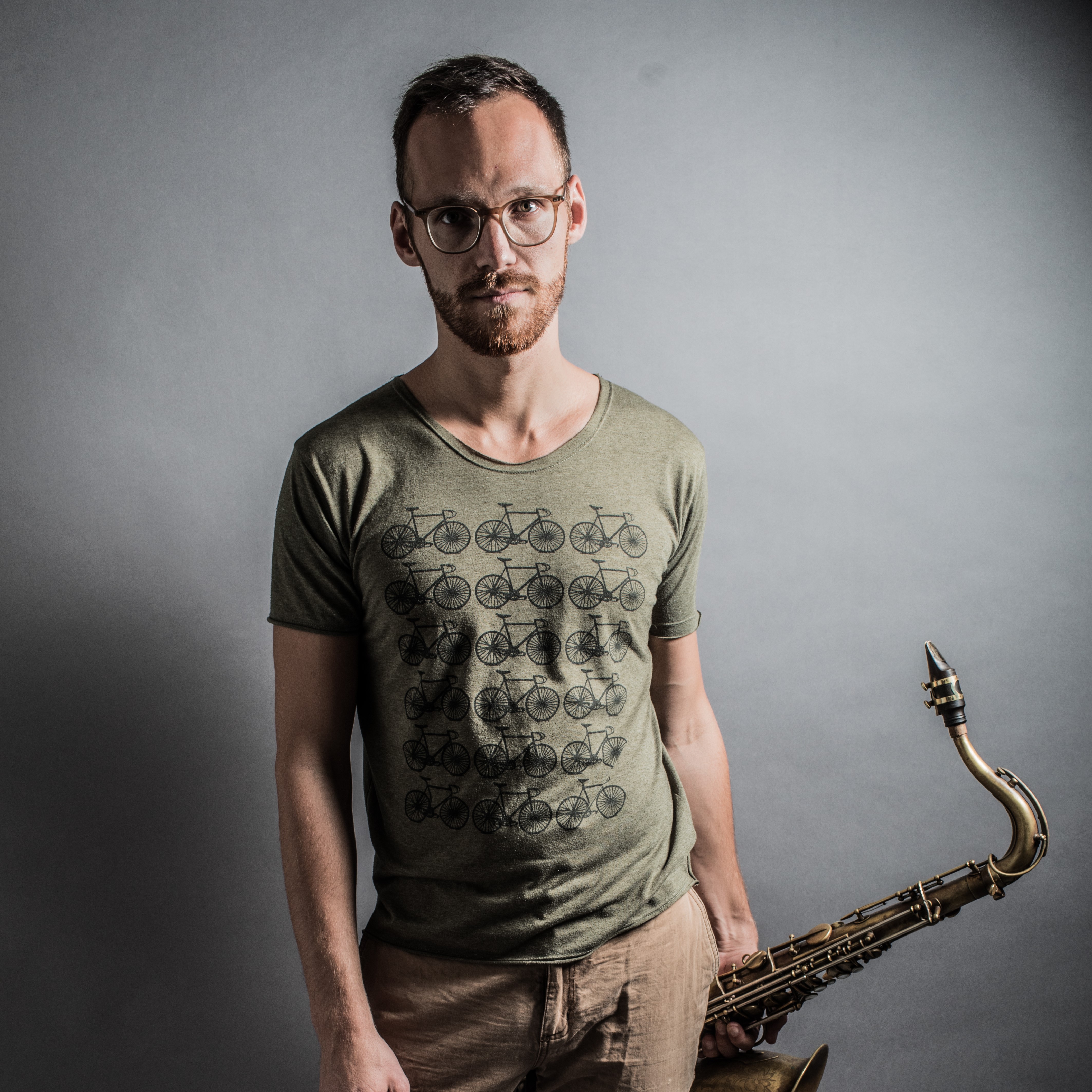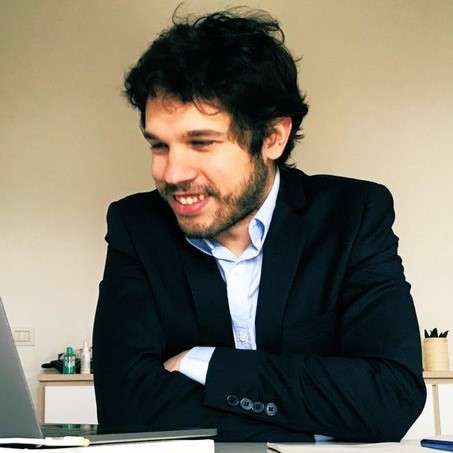How I defended my dissertation online: 7 Researchers share their experience

Have you ever been so nervous that your palms were dripping with sweat? I have. In fact, on the day of my master’s thesis defense. I carried a handkerchief, just to wipe my clammy hands. I was so out of breath that my advisor had to remind me to breathe before I began. I am sure preparing to defend a PhD dissertation is even more nerve-wracking! Every researcher has to defend his or her PhD dissertation, but the experience is unique to everyone. Those who are defending experience a rollercoaster of emotions, from apprehension and panic to anticipation and relief. It is a big milestone and a very important day for a researcher.
Yet, due to the COVID-19 pandemic, many final year PhD and masters students have been unable to experience a traditional dissertation defense. The pandemic has disrupted almost all aspects of academic life, including how the dissertation defense is carried out. Several researchers have had to defend their work online – and this is not a situation that they would normally have expected to face. To know more, I spoke to some newly minted PhDs and grad students who have successfully defended their dissertations online. Specifically, I asked them these questions:
Do you recall your initial thoughts when you learned about having to defend remotely?
- How did you prepare for it? Were there any specific challenges you faced?
- How did the actual defense go?
- Any tips for researchers who’re prepping to defend online?
The response they shared were illuminating. Here’s what they had to say:
PhD in Geology, University of Campinas, Brazil

My first thought was 'Am I ready for this?' By that I mean, I was considering all the stress of letting something so important as presenting your 4 years' worth of work and dedication to be resting on something as delicate as an online connection. Your research is all in your head and we know that it is often difficult to communicate effectively even if we are face to face with interlocutors.
I prepared myself by reading my dissertation and the papers it contained many times. As some work had been published more than a year ago, I was a bit cloudy in my mind. I had prepared the talk like 1.5 weeks before and practiced like 4 times. I asked both senior and less experienced colleagues to participate, so that they could give me feedback. It was challenging to keep up with the general COVID-19 situation - like the actual quarantine, escalating infected people and death numbers, worrying about my family members and such.
The defense went quite well. There were some delays as one of the panel members was a bit out of sync. The online platform we chose was Google Meet (for corporate reasons, not advertising) and things went smoothly. I was using my cell phone as a hotspot as the internet connection in my place was a bit unpredictable and I had a better upload bandwidth with my cell phone (check with your carrier beforehand about plans and data quota). It was stressful, as it was supposed to be, I think. The panel was quite happy with my work and we only discussed some minor points. As at least half of the work was already published (dead and gone, haha!), it was relatively simple to defend. In the end, we only had minor interruptions (e.g., muted voices, robot voices, clear cuts, barking dogs) but I tried to keep my chin up. It took almost 5 hours but it was smooth. I had a strong beer right after I got their decision. In Brazil you present to the panel, discuss and they gather to decide (you are out of the room at this moment) and you know the results right after they decide.
I think it is good for the candidate and the supervisor to have a trial on the selected online platform. It would be better if the professor hosts the conference as there is already a lot of tension on the candidate. Some actual tests might do good - I have had one test with my supervisor. My supervisor even had run tests on the platform with panel members who were less familiar with such online systems. I think that was good for alleviating errors and during the actual defense. I strongly recommend candidates practice their talk with friends online to check fluency, errors, and timing. That is a tip I would give to someone defending face to face as well. Having a backup plan over internet access or platform is essential. It is also good to have someone you trust around, getting you water, food, or any other sort of face to face help. I heard about some online trolls getting into online defense meetings... that sounds quite bad, so take care of the security of the selected platform. If it is in agreement with your program, it would be helpful for the panel to send questions two or three days before so you can get prepared to answer in case it is difficult over the internet. I hope people keep calm during the defense and have some spark of joy and contentment after it all passes. Enjoy with the ones you can at the moment.
PhD in Ecology and Evolutionary Biology, University of Tennessee, Knoxville, USA

I realized I would have to defend remotely over the course of a few days or a week. Things in early March were really touch and go, at least where I’m at in eastern Tennessee, and we weren’t initially aware of the temporal extent of the quarantine. The thought occurred to me one day and I sort of brushed it off, since it made me uncomfortable. Then I started asking people in my life if they thought it might be necessary for me to defend virtually, and more and more people said they thought it would be. I was stressed at that point because of all of the uncertainty. Finally, a few days later, my advisor calmly informed me I would be defending over Zoom and also giving my exit seminar (which is a requirement in my department) over Zoom. It took me a few more days to grow comfortable with the idea, but by the time of my defense, I had adapted to it.
I didn’t have all that much time to prepare for the virtual defense, since it was decided about a week prior to my defense date. But in reality, the virtual defense presented fewer challenges than an in person defense. My internet connection at home is good (thank goodness—that would truly have been a struggle if it was not!), and I didn’t have any issues with connectivity. So I set up two laptops, one with my zoom meeting and the other with my notes and chapters, and sat at my desk at home talking with my committee for a few hours. It was very odd, but not particularly challenging.
The defense went well. I expect it was shorter than it would have been in person, but having never defended before, I don’t know for sure. There were some very awkward pauses since two of my committee members chose not to have their video on, only audio, so I wasn’t able to make eye contact with them or judge their nonverbal responses. I spent a lot of time talking to a black screen, wondering how my words were being received. But in the end I passed, and I have to give a huge shoutout to my advisor who went out of his way to reassure me throughout the day that things were going well!
My biggest recommendation is for folks to try their hardest to be somewhere with good internet. I can’t imagine how awful this experience would have been if I’d had to deal with connectivity issues while trying to defend my dissertation! Also, it helped me to have my partner take our two dogs out of the house for the duration of the defense. We have a small house and they can be distracting. I had bought an outfit for my defense to boost my confidence prior to the pandemic hitting, and I decided to still wear it even though I was just at home. It helped me feel more professional. And, since I was sitting at my desk for several hours, I let myself wear cozy slippers and have a heating pad on my back to ease my anxiety. There are definitely ways to make the best of a bad situation! My biggest regret is that I wasn’t able to celebrate with my friends afterwards. I spent six years preparing for that day, and when it was over I had several nice texts and phone calls, but ultimately it was just another day at home. I’ve definitely felt a bit let down in the weeks following, and I’m disappointed I won’t be able to attend my graduation commencement ceremony, which my entire family was planning on being in town for. But these sacrifices are small in the grand scheme of things, and I’m grateful for technology that enabled me to proceed with my defense and stay on track to graduate.
Foreign Affairs Officer at the Ministry of Foreign Affairs of Indonesia; PhD in Politics at the University of Otago, New Zealand

I've known since last year that my defense would take place virtually (my scholarship and visa would run out before the projected date for the viva), so I had time to process it. I wasn't happy, but it wasn't an option to travel to New Zealand from Indonesia just for the viva on my own funds. I didn't know, of course, that online defenses would be the norm this time around.
I knew my own dissertation, but the logistics were a bit of a challenge. The internet connection at my place can be patchy and I didn't want to take a chance. I also have a five year old kid who co-sleeps with me, and the viva took place at 3 a.m. in my location. Solution: I had to book a hotel room with high-speed internet and leave the child with his grandparents. Thankfully hotels still operated on the day!
It went smoother than I expected! The university provided an IT support technician who stayed with us for the entire process. The exam chair did an excellent job making sure everyone spoke in turns.I guess, make sure to have adequate infrastructure (quiet place, good internet). Have a glass of water at the ready. If possible, ask the university to provide IT support. Ask a support person to be there in the room with you, if possible.
Composer and saxophonist, Adjunct Professor at NYU Steinhardt’s Jazz Studies Department, PhD in Jazz Studies, New York University, USA

Photo courtesy: Desmond White
I just successfully completed my doctoral defense in the field of Jazz Studies at New York University. For my PhD, I conducted a case study on legendary record producer and founder of the ECM label Manfred Eicher. In this study, I investigated the collaborative creative process in the recording studio.
I knew that a remote defense via Zoom was the right thing to do given the current health crisis. Naturally, I was a little disappointed. I see the defense as a unique opportunity: five high-profile professors and researchers, who have read your entire dissertation, gather in one room to give you feedback and advice. This is a rare situation, which is rather luxurious, and will not repeat itself so soon. I would have wished for a more personal experience that could result in a deep conversation about how my document could be the best it can be, and about which steps to take moving forward. For this, an in-person defense is more conducive. However, I am glad that, in the end, I was able to follow through with my defense even though we are currently in lockdown; technology is amazing.
To be quite honest, I hardly prepared anything for my defense. Or let's put it this way: the writing of my dissertation was my preparation. I felt confident enough to be able to defend my research because I am still so deep in it. The day before my defense, I re-read my introduction, method section, conclusion, and skimmed through my bibliography in order to be able to respond to any questions that would address the literature that I had referenced in my report.
It went very well. The committee raised some important points and offered constructive advice. The criticism was mild overall, and I received a full pass. The Zoom app worked well overall and I got a lot out of it.
The most important thing is to check your technology. Make sure that your internet connection is fast and stable and that you understand the software being used for the defense. Also, adjust the lighting so that you are well lit and everybody can see you. Dress like you would dress for an in-person defense, although this might feel weird since you are in your living room or study. In addition, prepare like you would for an in-person defense. This depends on your individual research project, of course.
PhD in Urban Planning, Design and Policy, Politecnico di Milano, Italy

I actually do not recall my thoughts. When I figured out I would have to defend the dissertation remotely, I was preparing the slides, and honestly little has changed for me. Nonetheless, I was a bit sorry to not meet the members of the jury and not have a traditional face-to-face discussion.
The defense went well, no internet connection problems, fortunately. Actually, not defending physically almost removed any pre-defense tension... until the defense day. I woke up just realizing, "OMG, I am going to defend my dissertation in two hours" and so, the importance of this moment suddenly dawned on me. Anyway, everything went well, it was a positive moment for me.
To the researchers preparing for their online defense, do not underestimate the importance of the moment just because it won't be a traditional discussion. Stay focused, stay strong; even though it is not easy when done at home. At the same time, enjoy the moment, smile and take advantage of the uniqueness of the moment. Not all candidates can do their PhD via Skype.
PhD in Health Policy and Management, University of North Carolina at Chapel Hill, USA

Around the same time, three things became clear to me that my defense would be done remotely, my hooding ceremony would be cancelled, and all of the other pomp and circumstance surrounding my graduation probably wouldn't be happening. Honestly, I was really disappointed. Throughout graduate school, I was, for a number of reasons, convinced I wasn't going to make it to the finish line. So, coming up on my defense, I was so incredibly proud of myself. Initially, it just felt like COVID-19 was detracting from some really big life moments - stealing my thunder. Eventually, I was just grateful I was able to move forward with everything, remotely or not. I have seen a lot of people's dissertation work get pushed back because of the COVID-19 pandemic.
As far as the technology goes, I honestly didn't do much to prepare for it, outside of talking over the logistics with my advisor and making sure my Zoom account could accommodate plenty of people. I did do a trial run with my mom, though. I knew she wanted to call in and, not being very tech savvy (to say the least), she wanted to make sure she knew how to put herself on mute. I went back and forth as far as sharing the Zoom call-in information. I ended up not disseminating it outside of my department listserv and immediate family. I was a little bit paranoid to share publicly after seeing on Twitter that people had had Zoom security issues, with internet trolls interrupting their defense.
The defense itself went beautifully, I think! Since my advisor and I had both been quarantining for 2+ weeks, I decided to do it from her house. I think it made a huge difference having her there in terms of making it more engaging and making it feel more like the big moment that it was. I think doing it alone from my house would have been a bit lonely. During my presentation, talking directly into my computer's camera was a little bit strange. I have public speaking anxiety, though, so it honestly probably alleviated my nerves a little bit doing it remotely. The only tech-related issue we encountered was bringing the public back in after the private committee discussions. My advisor ended up saying that folks could call back in after 30 minutes, but the committee discussions ran a little over that. Luckily, only a few people tried to call back in and we just asked them to wait another 10-15 minutes and try back. I think, looking back, we probably should have just told the public to drop off after the presentation and the public Q&A, and not offered to have them join again later. When it came time for my committee to deliberate, I stepped outside. When my advisor called me back in and told me the good news, it really felt like just as much of a celebration as it would have been, had everyone been there in person. My committee stayed on the call for a while to congratulate me and share in the moment. It really ended up not being a let-down after all.
As far as lessons learned, I would recommend that PhD candidates, with their advisors/chairs, walk step-by-step through how the defense will go and plan for logistics for each piece (e.g., figuring out a plan for public vs. private components). Even though I could have worn pajama pants, I opted to get dressed up as if it were happening in person - I think that made it feel more real and put me in the right mind set. I also recommend having video celebrations with loved ones afterwards to make sure the day feels special! I had a group video chat with my family afterwards and I know that was special for me.
PhD in Romance Studies (Italian), Duke University, USA

As the situation with COVID-19 became increasingly serious in mid-March, I knew a remote defense was a possibility. I held out hope that at least my committee would be able to meet in person until my university banned all on-campus activities in late March. Initially, I was disappointed. However, I was also relieved that there was still a way for me to move forward with this major milestone. My committee was extremely supportive, which made the process relatively painless!
In addition to the preparation I would have done for an in-person defense, I checked lighting, technology, and the internet connection in the space where I was planning to do my defense. I also made sure (with the help of our department's administrative assistant) that my committee members had all the details for the Zoom call. We had a small snafu in the beginning as one faculty member struggled to get on the call, but after that it was smooth sailing. Although I was a little nervous the conversation wouldn't be as vibrant via Zoom, my committee proved me wrong.
My best advice to anyone else preparing to do a virtual defense is to prepare as best you can, but accept the hiccups that inevitably come with a new format. If you are flexible and stay calm, you're likely to get as much out of a virtual defense as an in-person one. Finally, have a bottle of champagne chilling, so you can celebrate once you pass!
Whether a dissertation/thesis defense happens in person or online, the fact remains that it is an experience to remember. These seven researchers are from different parts of the world, work in different disciplines, and experienced (and overcame) various obstacles in the path to their defense. If you are preparing for your viva coce during this difficult time - take heart from their experiences and remember that you are not alone. We're here to support you!
Comments
You're looking to give wings to your academic career and publication journey. We like that!
Why don't we give you complete access! Create a free account and get unlimited access to all resources & a vibrant researcher community.














